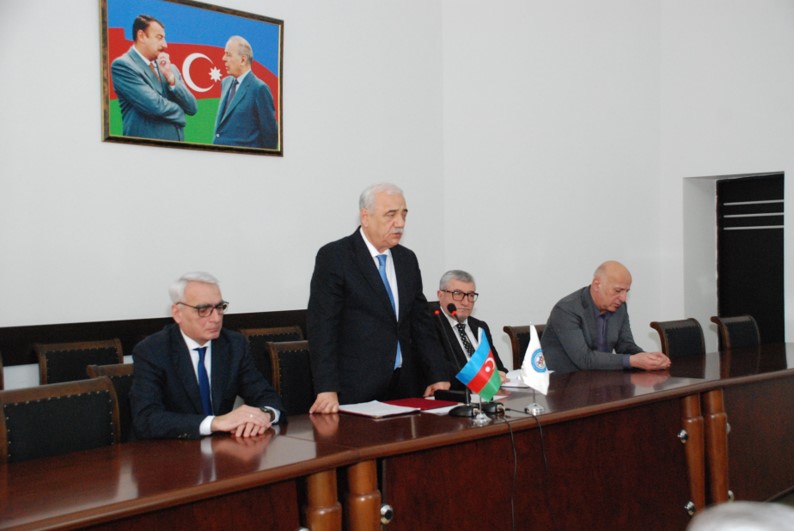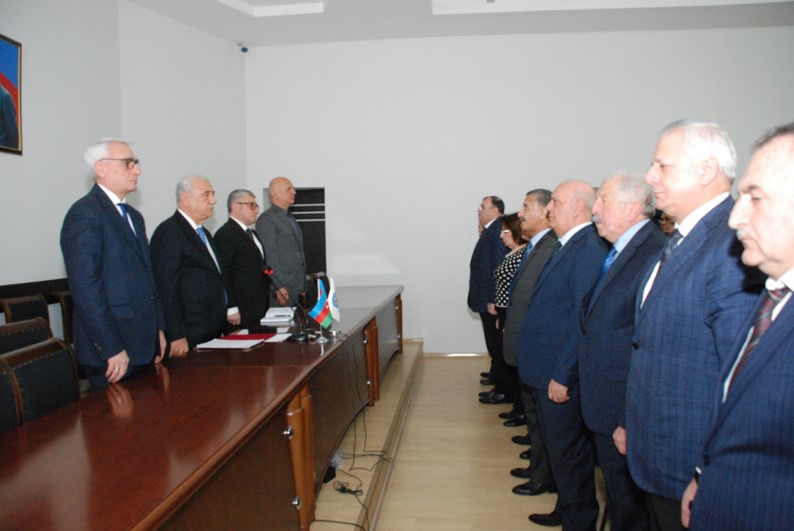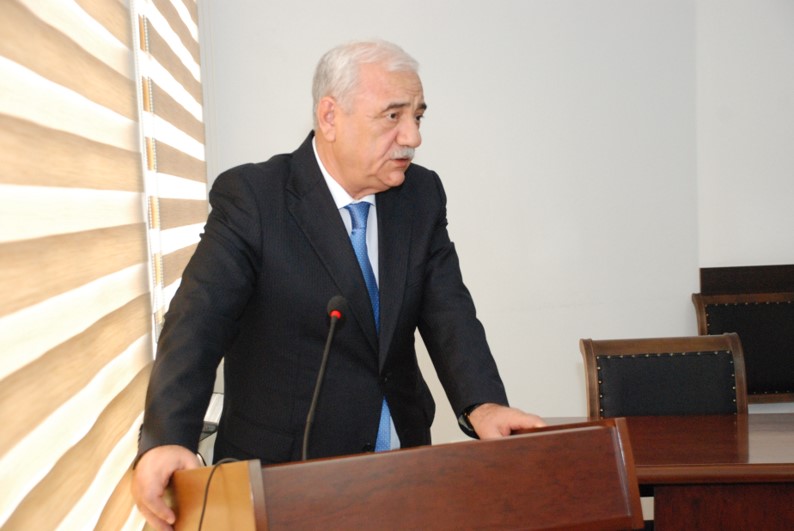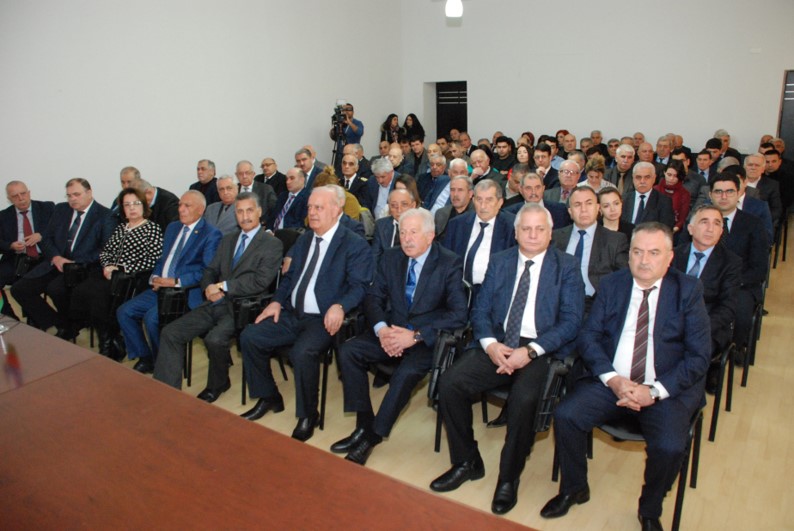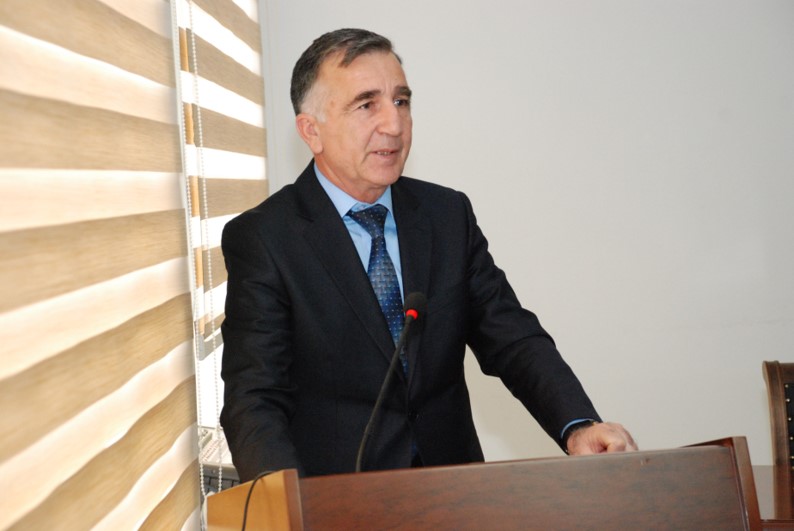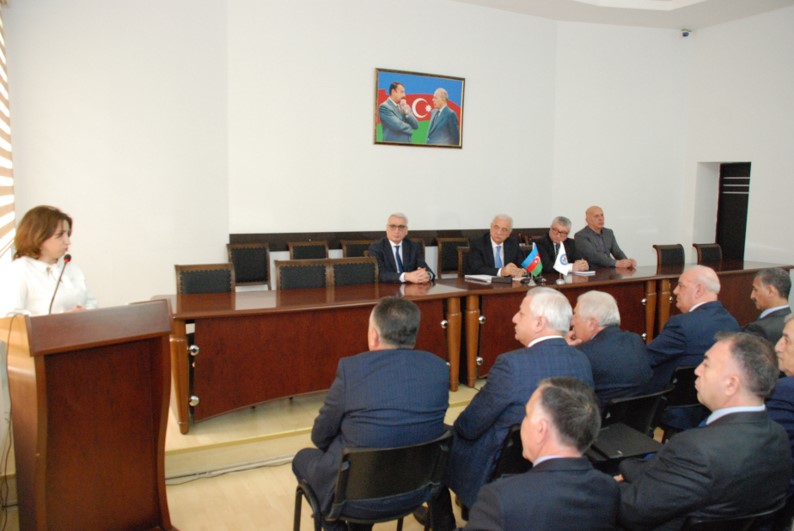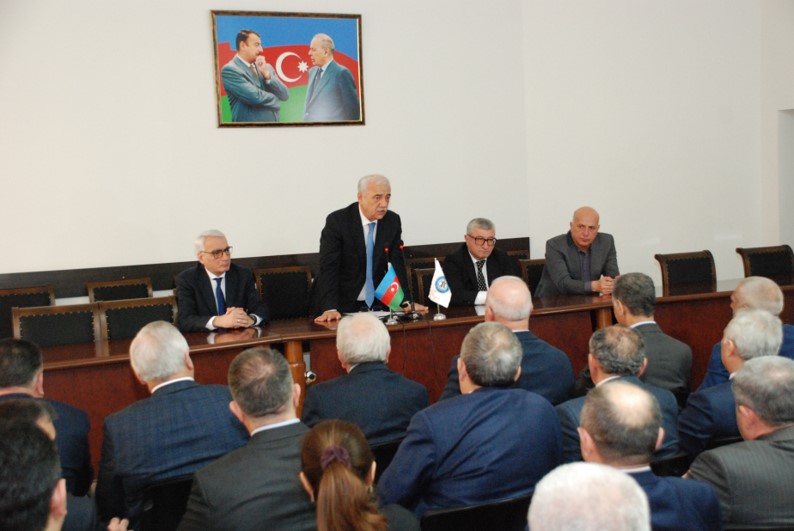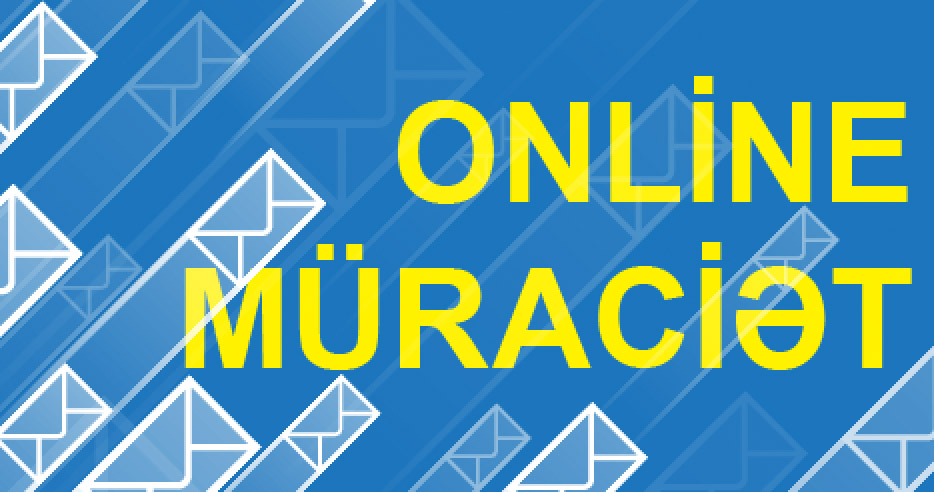Khojaly genocide was commemorated in the ATUC
24 Feb 2020
On February 24, the Confederation of Trade Unions of Azerbaijan hosted an event dedicated to the 28th anniversary of the Khojaly genocide.
Speaking
at the event, chairman of the ATUC Sattar Mohbaliyev said that the night of
February 25 to 26, 1992, the bloody letter to the history of Azerbaijan is one
of the bloodiest tragedies in human history. The Armenian armed forces
destroyed the ancient city of Khojaly with the help of armored vehicles and
military personnel of the 366th Moto Engine, which is still in Khankendi since
the USSR. The Khojaly tragedy was a continuation of the policy of ethnic
cleansing and genocide carried out by the Armenian nationalists and their
patrons against the people of Azerbaijan for up to 200 years.
According
to him, in violation of all international law, the Armenian state wants to
unite Nagorno-Karabakh and demonstrate its readiness to commit all crimes and
atrocities. The tragedy of the 20th century is the result of the aggressive and
criminal Armenian policy of Khojaly genocide. This tragedy at the end of the
20th century is one of the most serious crimes not only against the Azerbaijani
people, but against all humanity and mankind.
This
criminal act against humanity should receive its fair legal assessment by the
international community. The government of Azerbaijan has been purposeful and
consistent in bringing the crimes committed against our people, including the
Khojaly genocide, to the world community and recognizing them as genocide.
President Ilham Aliyev described the Khojaly tragedy as a bloody page of the
genocide and ethnic cleansing policy of aggressive Armenian nationalists
against the Azerbaijani people for centuries.
These
atrocities committed by the Armenian aggressors will never be erased. It was
not only a genocide against the people of Azerbaijan, it was a bloody crime
against humanity and humanity. Nevertheless, the Azerbaijani authorities at the
time did nothing to make the political assessment of this horrific event, to
bring the objective information about the bloody massacre to the international
community. Only after national leader Heydar Aliyev came to power at the demand
of the people, the bloody tragedy was given legal and political evaluation. At
the initiative of national leader Heydar Aliyev in 1994, the Azerbaijani
parliament declared February 26 as the day of Khojaly genocide.
Each
year, the anniversary of this tragic tragedy is celebrated in our country and
in many countries around the world. The Heydar Aliyev Foundation, in
particular, the President of the Foundation, Mehriban Aliyeva, has been
instrumental in communicating the tragedy to the international community.
“Justice for Khojaly!” At the initiative of Leyla Aliyeva, vice-president of
the Foundation Every year, a series of events are held as part of the campaign.
The logical consequence of the successive and complex measures is to expose the
face of the Armenian propaganda machine based on lies and fraud.
The fact
that the Khojaly tragedy is already reflected in the decisions and resolutions
of many countries and international organizations. The parliaments of Mexico,
Colombia, Peru, Pakistan, Bosnia and Herzegovina, Romania, the Czech Republic,
Jordan, Honduras, Guatemala, Panama, Sudan, as well as 21 US legislative bodies
and the Islamic Cooperation Organization have recognized and condemned the
Khojaly genocide. According to international law, genocide is an act of peace
and humanity and is considered the most serious international crime. The UN
General Assembly Resolution 260 of December 9, 1948, which came into force
since 1951, establishes the legal basis for the crime of genocide.
The
chairman of the ATUC noted that the panel, closely followed by the world media,
was remembered by President Ilham Aliyev delivering a history and policy lesson
to the Prime Minister of Armenia. Pashinyan was once again in a state of
perversion by distorting historical facts, with very weak English, and also
with diligent political analysis and arguments.





